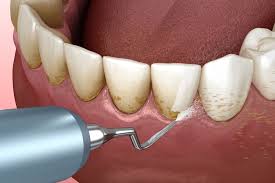Maintaining optimal oral health goes beyond regular brushing and flossing. Over time, plaque and tartar build up on the teeth, leading to gum disease, bad breath, and other dental problems. Professional Tooth Scaling And Polishing is a preventive dental procedure that effectively removes these deposits, helping maintain a healthy, clean, and bright smile.
Understanding Tooth Scaling
Tooth scaling is a dental treatment aimed at removing plaque, tartar, and bacterial buildup from the tooth surfaces and beneath the gumline. Plaque is a sticky film of bacteria that accumulates daily, while tartar is hardened plaque that cannot be removed through regular brushing. If left untreated, tartar can cause gum inflammation, cavities, and even tooth loss.
How Scaling Works
Scaling is usually performed using specialized dental instruments, either manual scalers or ultrasonic devices. Manual scalers allow precise removal of deposits, while ultrasonic tools use vibrations and water sprays to loosen and wash away plaque and tartar. This process helps reduce bacterial growth and promotes gum health.
Polishing: The Finishing Touch
Polishing is the step that follows scaling. After removing plaque and tartar, teeth may appear slightly rough. Polishing smooths the tooth surfaces, making it harder for plaque to accumulate again. A rotating rubber cup and a special polishing paste are used to achieve a shiny, smooth finish. Polishing also helps remove surface stains caused by food, drinks, or smoking, restoring the natural brightness of teeth.
Benefits of Tooth Scaling and Polishing
Prevents Gum Disease
Regular scaling and polishing prevent gingivitis and periodontitis by removing bacteria-laden deposits. Healthy gums reduce the risk of inflammation, bleeding, and eventual tooth loss.
Reduces Bad Breath
Persistent bad breath is often caused by bacterial buildup on the teeth and gums. Professional cleaning eliminates these bacteria, leaving the mouth fresh and clean.
Enhances Aesthetic Appeal
Polishing removes surface stains and restores the natural shine of teeth. This improves overall appearance and boosts confidence in social and professional settings.
Supports Overall Health
Oral health is linked to overall health. Untreated gum disease can contribute to heart disease, diabetes, and other systemic conditions. Regular scaling and polishing help minimize these risks by maintaining a clean oral environment.
When to Consider Tooth Scaling and Polishing
Dental professionals typically recommend scaling and polishing at least once every six months, but the frequency may vary depending on individual oral health. People with a higher tendency for plaque buildup, smokers, or those with a history of gum disease may require more frequent treatments.
The Procedure: What to Expect
- Examination: The dentist or hygienist examines your teeth and gums to assess the level of plaque and tartar buildup.
- Scaling: Using manual or ultrasonic instruments, deposits are removed from the tooth surfaces and below the gumline.
- Polishing: The teeth are polished using a rubber cup and polishing paste to smooth surfaces and remove stains.
- Fluoride Treatment (Optional): Some dental clinics offer fluoride application after cleaning to strengthen enamel and prevent decay.
The entire process is typically painless, although some patients may experience mild sensitivity during or after the procedure.
Maintaining Oral Health Post-Scaling
Proper oral hygiene is essential to maintain the results of scaling and polishing:
- Brush Twice Daily: Use fluoride toothpaste and a soft-bristled toothbrush to clean all tooth surfaces.
- Floss Daily: Flossing removes plaque and food particles between teeth that brushing cannot reach.
- Limit Staining Foods: Reduce intake of coffee, tea, red wine, and tobacco products to prevent surface stains.
- Regular Dental Checkups: Routine visits allow early detection of dental issues and timely intervention.
Addressing Common Concerns
Sensitivity
Some patients experience temporary sensitivity after scaling, particularly if tartar removal exposed areas near the gumline. Using desensitizing toothpaste and avoiding extremely hot or cold foods can alleviate discomfort.
Pain or Discomfort
Scaling and polishing are generally comfortable procedures. Local anesthesia may be used in rare cases where deep cleaning is required.
Cost Considerations
While costs may vary depending on the clinic and complexity of cleaning, professional scaling and polishing are considered a worthwhile investment in preventive dental care, reducing the need for expensive restorative treatments in the future.
Advancements in Scaling and Polishing
Modern dental technology has enhanced the efficiency and comfort of scaling and polishing:
- Ultrasonic Scalers: Provide faster and more effective removal of deposits, often with less discomfort.
- Air Polishing Devices: Use a combination of air, water, and polishing powder to clean teeth gently and efficiently.
- Digital Monitoring: Some clinics use digital imaging to track plaque accumulation and gum health over time.
Conclusion
Professional tooth scaling and polishing are essential components of preventive dental care. By removing plaque, tartar, and surface stains, these procedures protect against gum disease, improve aesthetics, and promote overall health. Regular dental visits combined with proper at-home oral hygiene ensure long-lasting benefits, maintaining a confident and healthy smile.
Investing in regular scaling and polishing not only protects your teeth but also contributes to better overall wellness and quality of life. Don’t wait until dental problems arise—proactive care today leads to a healthier tomorrow.




